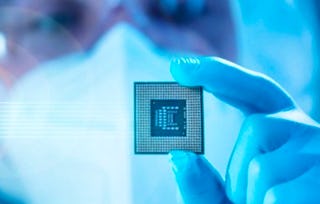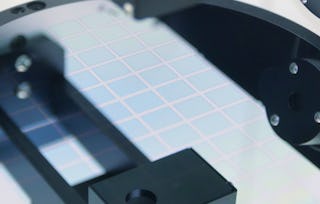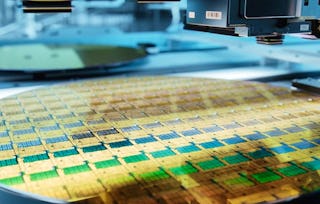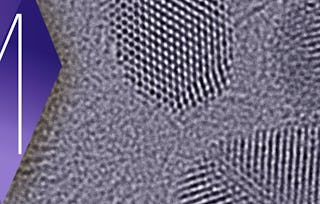Electron and ion beams are widely used for both qualitative and quantitative analysis of semiconductor materials and devices. They can be used to image structures with sub-nm resolution and to provide information about elemental composition and dopant concentration. This course describes the fundamentals of electron and ion beam characterization and includes a project that analyzes the surface roughness of a solar cell.

Electron and Ion Beam Characterization

Electron and Ion Beam Characterization
This course is part of Semiconductor Characterization Specialization

Instructor: Trevor Thornton
Access provided by FutureX
1,630 already enrolled
Gain insight into a topic and learn the fundamentals.
17 reviews
Intermediate level
Recommended experience
5 hours to complete
Flexible schedule
Learn at your own pace
What you'll learn
Explain the interaction of electron and ion beams with semiconductor materials.
Describe the constituent components of electron and ion beam characterization systems.
Describe applications of electron and ion beam characterization.
Skills you'll gain
Details to know

Shareable certificate
Add to your LinkedIn profile
Assessments
5 assignments
Taught in English
See how employees at top companies are mastering in-demand skills

Build your subject-matter expertise
This course is part of the Semiconductor Characterization Specialization
When you enroll in this course, you'll also be enrolled in this Specialization.
- Learn new concepts from industry experts
- Gain a foundational understanding of a subject or tool
- Develop job-relevant skills with hands-on projects
- Earn a shareable career certificate

There are 5 modules in this course
Earn a career certificate
Add this credential to your LinkedIn profile, resume, or CV. Share it on social media and in your performance review.
Instructor
Instructor ratings
(6 ratings)
Offered by
Why people choose Coursera for their career

Felipe M.
Learner since 2018
"To be able to take courses at my own pace and rhythm has been an amazing experience. I can learn whenever it fits my schedule and mood."

Jennifer J.
Learner since 2020
"I directly applied the concepts and skills I learned from my courses to an exciting new project at work."

Larry W.
Learner since 2021
"When I need courses on topics that my university doesn't offer, Coursera is one of the best places to go."

Chaitanya A.
"Learning isn't just about being better at your job: it's so much more than that. Coursera allows me to learn without limits."
Explore more from Physical Science and Engineering

Arizona State University

Arizona State University

Arizona State University

École Polytechnique Fédérale de Lausanne

